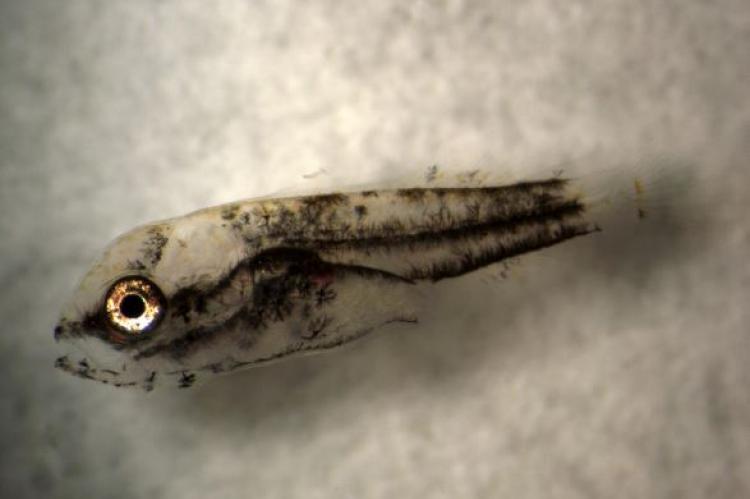Barramundi at risk from increased carbon dioxide
A new study in the Oecologia journal has shown that wild barramundi, a freshwater fish, are likely to be under threat from ocean acidification. This is the first to show that even freshwater fish, which spend a small portion of their lives in the ocean, can be adversely affected by the higher levels of carbon dioxide expected at the end of the century.
Most adult barramundi live in freshwater rivers but need ocean water to hatch their eggs. The barramundi larvae and juveniles grow up in coastal areas like estuaries, swamps and shallow coastlines for several years before migrating upstream to join the adults in the river.
"Developing baby barramundis, hatched in the oceans, need to find estuaries as intermediate habitats before they move upriver to complete their life cycle," said PhD candidate Jennifer Pistevos from The University of Adelaide, who conducted the research under the supervision of Professor Ivan Nagelkerken and Professor Sean Connell.
The researchers found that at higher carbon dioxide levels, the response of baby barramundi to less salty, warmer waters and estuarine smells was reversed compared to the baby barramundi raised in waters at current carbon dioxide levels.
"We believe the baby fish in acidified waters were responding to estuarine signals at an earlier stage than they should be. They may not be developmentally ready—a bit like running before they learn to walk,” said Pistevos.
“Recruitment into estuaries is a delicate process and needs to be well-timed to match food abundance and to avoid predators,” said project leader Professor Nagelkerken, from the university's Environment Institute. He added that the failure to adequately time their move to estuaries is likely to have serious consequences for adult barramundi population sizes.
He concluded that the “barramundi could be considered a robust species in terms of fluctuating environmental conditions and it was thought they could possibly deal satisfactorily with acidified waters. But we’ve shown just the opposite. This will have a significant impact on fishing—both recreational and commercial—where there is dependence on wild catches."


